
They may have listened. Have since seen the CP article posted with a corrected headline: globalnews.ca/news/1109076...
20.03.2025 18:19 — 👍 13 🔁 3 💬 1 📌 1@douglasbbryan.bsky.social
Climate and energy policy at Navius Research @naviusresearch.bsky.social

They may have listened. Have since seen the CP article posted with a corrected headline: globalnews.ca/news/1109076...
20.03.2025 18:19 — 👍 13 🔁 3 💬 1 📌 1A bastion of Canadian climate policy is no more
14.03.2025 21:45 — 👍 1 🔁 0 💬 0 📌 0Who pays for tariffs depends on factors beyond the transaction at the border. Model results and real-world data for key commodities show the true impact depends on how easily industry can pivot from the status quo. 6/6
13.03.2025 19:12 — 👍 0 🔁 0 💬 0 📌 0On the energy front, prices of Canadian heavy crude (WCS) have seen an increased discount to U.S. benchmarks after the tariff announcement. This discount has tightened in recent weeks but expect to see it widen again if energy tariffs are confirmed. 5/6
13.03.2025 19:12 — 👍 0 🔁 0 💬 1 📌 0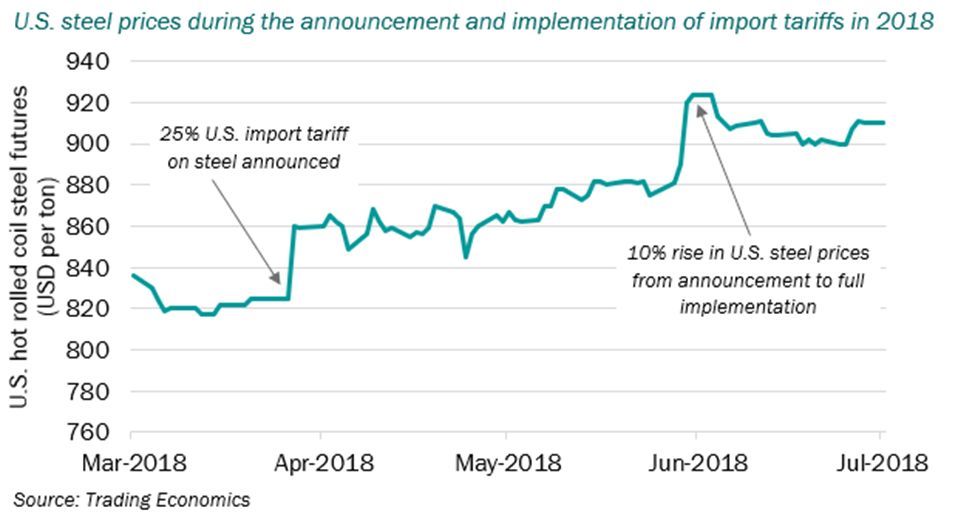
Real world data backs this up! U.S. import tariffs on steel in 2018 caused steel prices to rise over 10%. Among the recent threats, several steel suppliers have announced price increases, with U.S. futures for hot-rolled steel coil jumping by as much as 25% since the beginning of Feb. 4/6
13.03.2025 19:12 — 👍 0 🔁 0 💬 1 📌 0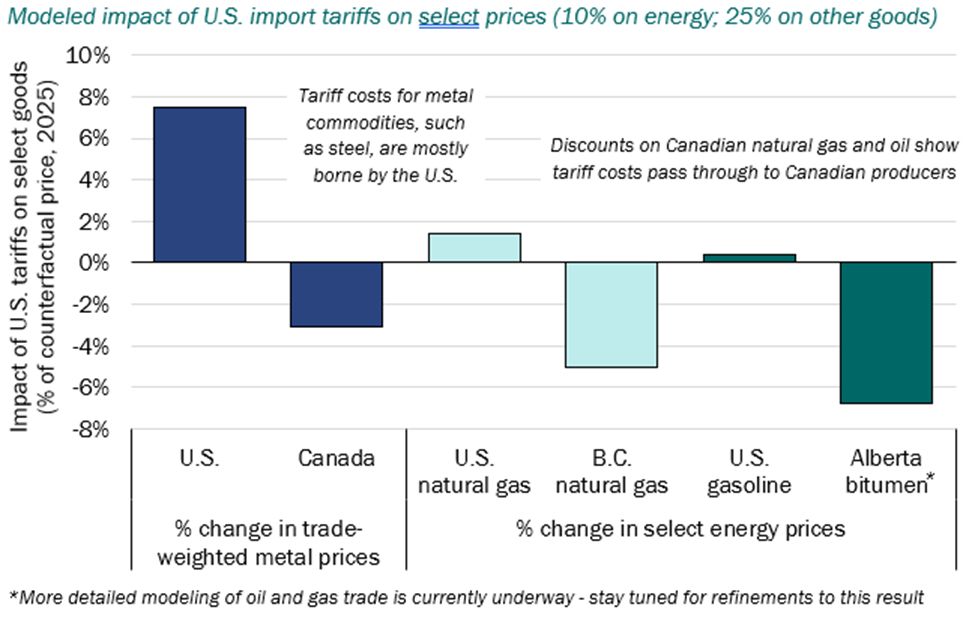
Prices of metals, such as steel and aluminum, are expected to increase in the U.S. in response to import tariffs, while Canadian oil and gas producers are expected to respond with discounts to compete in the U.S. market due to limited alternatives 3/6
13.03.2025 19:12 — 👍 0 🔁 0 💬 1 📌 0Navius modeling on the price impact of tariffs shows the cost burden is shared based on how easily importers can find alternative sources for goods and whether exporters can redirect foreign demand 2/6
13.03.2025 19:12 — 👍 0 🔁 0 💬 1 📌 0
🧵 Thread: Who really pays for tariffs?
The ongoing U.S.-Canada trade dispute raises an important question: Who ultimately feels the price impact of tariffs? Mechanically, tariffs are paid by the importer, but the actual economic burden is more complex… 1/6
www.naviusresearch.com/publications...
Woah. That would bring the number of 50m public indoor pools in Vancouver down to one (?) excl. UBC. Surprised not to see more coverage of this @vancouversun.bsky.social
19.02.2025 03:22 — 👍 1 🔁 1 💬 0 📌 0We found a dozen commodity groups that when tariffed at 25% affect the US economy by $80bn more than Canada
Read more here: t.co/SKLMQYFHa4
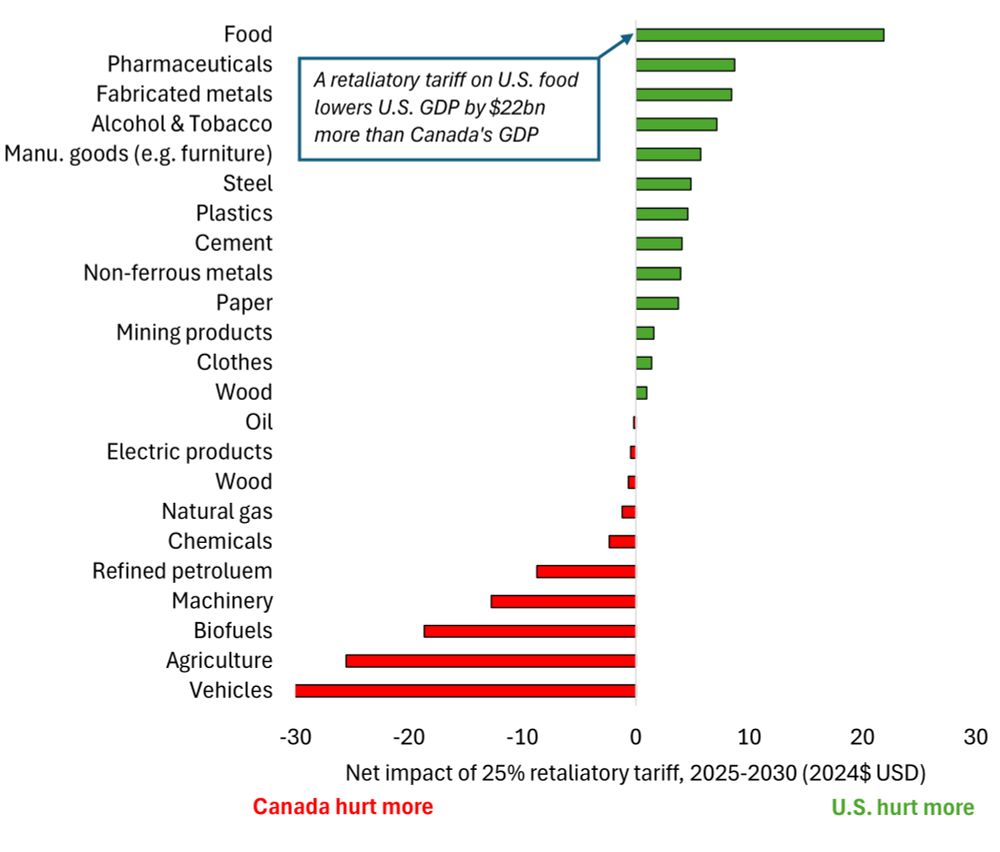
Grub, germs and steel?
Our latest tariff analysis finds the most effective tariff response for Canada is to tax US food and beverages, pharmaceuticals, and metal products.
@naviusresearch.bsky.social
Economics and politics are tied at the hip. Consider a Canadian retaliation that halts energy exports to the US. Two thirds of that oil is used in refineries in PADD 2 i.e. the Midwest. I cannot see Washington tolerating sky high gas prices in Michigan and Wisconsin for very long. Just my two cents
21.01.2025 16:13 — 👍 3 🔁 0 💬 1 📌 0@naviusresearch.bsky.social
07.01.2025 22:34 — 👍 0 🔁 0 💬 0 📌 0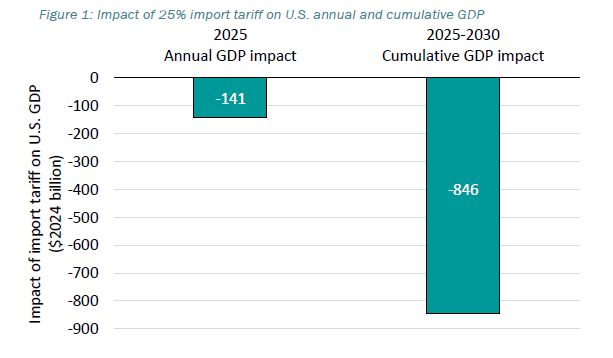
Trump's tariffs could lead to a trillion dollar (nominal) hit to US GDP over the next six years, as per new Navius analysis:
t.co/W1KGQORT9H
*for new units. Existing cogen units are allowed to deduct GHGs from onsite consumption until 2050
18.12.2024 04:55 — 👍 1 🔁 0 💬 0 📌 0I believe this is correct. BTF cogen units (consumption >= generation) are excluded; all elec emissions from net exporting cogen are covered
18.12.2024 04:46 — 👍 2 🔁 0 💬 1 📌 0Great work Brett. And congrats on the feature in the RIAS
18.12.2024 04:04 — 👍 1 🔁 0 💬 0 📌 0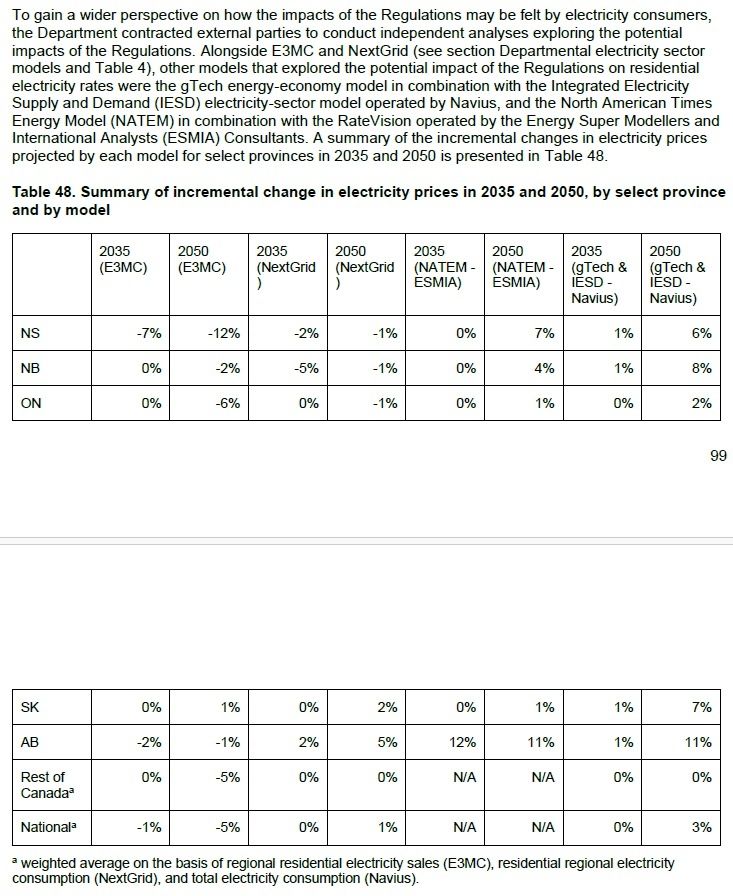
Kudos to ECCC for seeking independent modelling of the final Clean Electricity Regulations.
In short, Navius finds the changes to the regs help limit elec price impacts at the cost of fewer emissions reductions before 2050
You will find a snippet of our assessment of the regs on p99 of the RIAS.